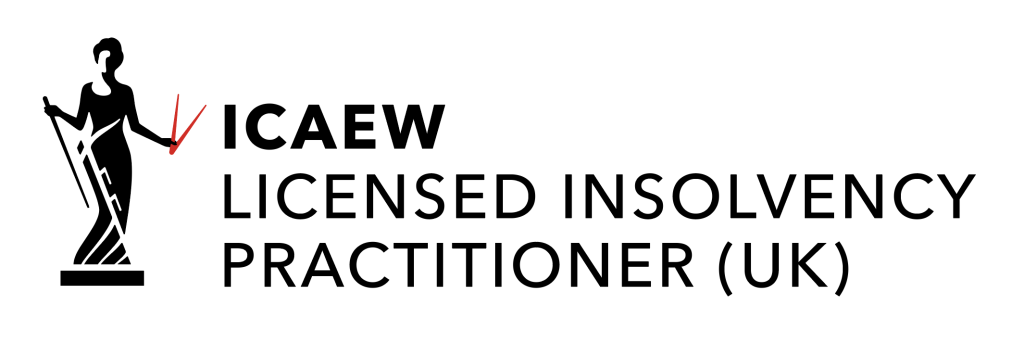Need to Appoint a Licensed Insolvency Practitioner?
Appointing a Licensed Insolvency Practitioner (IP) is essential when your company is experiencing financial distress or insolvency.
Get a quote today
Step-by-Step Guide to Appointing a Licensed Insolvency Practitioner
A licensed IP ensures your insolvency process complies with UK law, protects directors from potential liabilities, and manages relationships with creditors and stakeholders effectively.
Here’s a structured, human-friendly guide to appointing a licensed IP:
| Step | Description |
|---|---|
| 1. Identify Financial Distress | Recognise early warning signs of financial difficulty such as persistent cash flow problems, creditor pressures, legal threats, or unpaid taxes. Early identification provides more solutions and better outcomes. |
| 2. Initial Consultation | Contact a licensed IP for an initial confidential consultation. Trusted firms like Anderson Brookes provide free initial consultations to assess your situation and outline your potential options. |
| 3. Understand Your Options | Your IP will discuss viable insolvency solutions tailored to your company, such as Creditors’ Voluntary Liquidation (CVL), Company Voluntary Arrangement (CVA), or administration. Clear, professional advice at this stage is crucial. |
| 4. Select an Insolvency Procedure | Choose the best-suited insolvency solution based on expert guidance, carefully considering factors such as legal obligations, creditor positions, and asset protection. |
| 5. Formal Appointment of IP | Sign a formal engagement letter with your selected IP, authorising them to act officially on behalf of your company. This marks the beginning of their formal role managing the insolvency process. |
| 6. Notify Creditors and Stakeholders | The IP immediately informs all creditors and stakeholders of their appointment. They handle all communications, reducing pressure on directors and ensuring transparency throughout the process. |
| 7. Execute the Insolvency Procedure | The IP manages every stage of the insolvency process, including asset realisation, creditor distributions, and completing all legal obligations efficiently and transparently. |
Why Choosing the Right IP is Important
Selecting the right insolvency practitioner significantly impacts your insolvency outcome because:
-
Experience: A seasoned IP provides tailored and strategic advice, crucial in achieving optimal outcomes for your business and creditors.
-
Legal Compliance: Proper management of insolvency processes by a licensed professional ensures adherence to UK insolvency laws, significantly reducing directors’ personal risk.
-
Effective Communication: Clear, transparent communication with creditors reduces conflict, ensures smoother negotiations, and leads to quicker resolutions.
-
Trust and Clarity: Having a trusted IP providing transparent explanations at every stage gives confidence and peace of mind during a difficult process.
Connect with Anderson Brookes for Expert Help
Anderson Brookes’ Licensed Insolvency Practitioners offer clear, professional guidance, managing your insolvency process efficiently and empathetically.
Contact us today for a free and confidential consultation:
-
Email: advice@andersonbrookes.co.uk
-
Phone: 0800 1804 933 (freephone)
Acting promptly with trusted professional support ensures the best possible outcomes for you, your business, and all stakeholders involved.
Key Questions Before Appointing an IP
To ensure you appoint the right practitioner, consider asking these essential questions:
| Question | Why it Matters |
| Are you licensed and regulated? | Verifies the IP’s qualifications and regulatory oversight, ensuring your insolvency procedure is managed professionally and legally. See Licensed IP vs Unregulated Adviser. |
| Can you provide examples of similar cases you’ve managed? | Ensures their experience aligns with your company’s unique situation, giving confidence in their ability to deliver positive outcomes. |
| What insolvency procedure do you recommend and why? | Demonstrates their depth of understanding, allowing you to assess their tailored approach and confidence in providing effective solutions. |
| What outcomes and timelines can I realistically expect? | Helps set clear expectations, enabling effective planning and reducing uncertainty. |
| How do you structure your fees? | Provides transparency regarding costs, allowing better budgeting and ensuring no hidden surprises. |
Can you liquidate your limited company?
Testimonials
Our clients praise our professionalism, reliability, and the exceptional support we provide during challenging times, helping thousands of company directors through insolvency, liquidation, and business debt solutions.
Frequently Asked Questions
Have a company in England or Wales? These are your limited company business debt, liquidation and insolvency questions answered.
Can I liquidate the company myself?
No. Only a Licensed Insolvency Practitioner can place a company into liquidation.
What are the advantages of liquidation?
Placing the company into liquidation will stop debt enforcement, including bailiff action. The directors are usually in control of the process and can choose the liquidator. In most cases, it can be completed within two weeks without needing to attend any formal meetings. Company debts are usually written off unless they are personally guaranteed. Directors who act responsibly can show they handled the company’s financial affairs properly.
Is liquidation the same as dissolving the company?
No. Only a Licensed Insolvency Practitioner can liquidate a company. A director can apply to dissolve a company through Companies House, but only if certain conditions are met. If the company is insolvent, it may be a criminal offence to apply for strike-off. Always take professional advice before doing this. If you think you might qualify for dissolution, call us and we’ll explain the process. See our Licensed vs Unregulated page.
What is compulsory liquidation?
This happens when a creditor applies to court to wind up a company due to non-payment of a debt over £750. If the court agrees, the company is placed into compulsory liquidation. This often leads to more problems for directors, who may find it harder to defend against accusations such as wrongful trading. It is usually better to start the process voluntarily. See Strike Off vs Voluntary Liquidation for more details.
How much will it cost to liquidate my company?
It depends on your situation. In most cases, the directors do not pay the costs personally. The liquidation is paid for using company assets. We are a small practice based in Bolton with low overheads, so we offer some of the most competitive fees in the UK. All costs will be confirmed in writing before we proceed. You may also be interested in CVL Costs.
What is a phoenix company?
This is a new limited company that starts after an old one has gone into liquidation. It allows the business to carry on with the profitable parts of the original company. There are strict rules about reusing a company name, so it’s important to get advice before going ahead. For further detail and more simple explanations of insolvency and liquidation terms see our Glossary.
What is a Members’ Voluntary Liquidation (MVL)?
An MVL is used when a company is still solvent and can repay all its debts. It may be the right option if directors want to retire or step away from the business. MVLs can offer tax benefits, but they must be handled by a Licensed Insolvency Practitioner. See all types of liquidations.
What is wrongful trading?
If a company is insolvent and directors carry on trading, they may be accused of wrongful trading. A director could be held personally liable if they knew, or should have known, that the company couldn’t avoid liquidation and did not act to reduce losses. Acting early helps reduce this risk.
Do you only offer formal insolvency advice?
No. Many businesses contact us who do not need formal insolvency procedures. We help explore all the options, including self-help and informal solutions. If formal action is needed, our Licensed Insolvency Practitioner can act for you directly.


